Equipment for CUPAGIS Algerian partners
It is natural that developing of new curricula that teach how to use large data sets for new purposes must be supported by equipment that students will use after graduation. Otherwise there is not much hope that the graduates will really boost the field. Similar to other Erasmus+ projects of this kind, one of the major steps of CUPAGIS is to purchase for the Algerian partners a large suite of equipment.
Three sets of devices
At the beginning everything seemed smooth and encouraging in terms of purchasing the equipment. The proposal described three major set of devices. The core set, as expected for this project, with the goal of integrating extensive data flow from GIS devices into teaching of precision agriculture, consisted of a powerful data server, an advanced workstation, several desktops to organize the system, a notebook to monitor and steer all this remotely whenever necessary, some data storage and essential devices (switches) to connect this storage and the entire analysis centre with the incoming data flow and with the student’s devices, and UPS to provide continuous work of the system during short-term problems with electricity supply. This set was called PAGIS in the project and in the relevant documentation. Not unexpectedly, this acronym stands for Precision Agriculture using GIS systems.



The PAGIS environment was designed to operate by professionals and to be accessible by teachers and students from another set called VCR. This acronym stands for a computer class of almost 20 medium-class all-in-one computers connected into a system using a switch and supported by a printer, beamer, interactive board, and a notebook for a teacher to oversee the entire process. The idea of all-in-one computers is straightforward: there are less different boxes and thus fewer problems with cables and smaller probability for failure of the components of the system. Also, such computers are usually less expensive than classic combinations of a desktop and monitor with the same performance.
The third set was smaller but in some sense even more important. The nickname PASENSO stands for a computerized competence and marketing unit. To make it operational and support its sustainability, the plan was to equip each of such units with a couple of all-in-one computers, printer, and mobile beamer with a tripod screen for presentations also outside of the PASENSO office rooms. This set also included a semi-professional photo camera with a function of video recording, having in mind the necessity of documentation of some important scenes and/or events.
See also the CUPAGIS Facebook page
A smooth start
The idea was to purchase and deliver these items somewhere between the end of the first project year and summer 2020. This timing was design to allocate time for tuning of the set according to particular needs of the partners and drafting the needs for specific (e.g., sensor) equipment necessary for teaching the new subjects and courses. Also, as students were expected to be enrolled into the new curricula starting from the second or even third year of project (not earlier than September 2020), there was no sense to set up the entire system and especially the computer class much earlier.
The work on equipment went in two directions during the first year. Partner ECM (later Exolaunch) compiled a set of conditions for single items (See the internal document “Technical Req for Cupagis_02Dec2019.pdf”) to ensure best cost/benefit ratio and to guarantee that the units are compatible with each other. The Algerian partners who developed the new subjects and curricula selected additional devices necessary for teaching of the new curricula. These aspects were discussed on a numerous coordination meetings, both physically and using Skype. The final list was agreed, as planned, at the end of the first project year.
Technically, it was agreed that Exolaunch, with its extensive experience in various kinds of equipment, will take care of the purchase process. Exolaunch published a series of tenders, gathered proposals, performed the analysis, discussed with Algerian partners about necessary details and with European partners about reasonability of each item based on their experience, selected the suppliers, and signed the contracts with selected suppliers at the beginning of 2020.
Everything seemed to be perfect and running almost perfectly in time until February 2020.
The strike by COVID-19
And then the COVID-19 stroke. The signal from suppliers in March 2020 was frustrating: it is not possible to supply all the equipment by agreed time. Moreover, it is not possible to tell any fixed deadline for arrival of the entire set (even though some items could be delivered from stock in time).
A series of emergency coordination meeting decided: under circumstances of this force majeure we most probably have to (i) cancel the delivery contracts and (ii) search for other ways to purchase the necessary equipment. It seemed likely that we do not fit into the original timetable. If so, we have to be ready to apply for a prolongation of the entire project. It seemed still reasonable to postpone this application until the new timeline will be clearer.
An internal shift of duties
Fortunately, the coordinator’s university had by this time already performed a major open public procurement procedure for purchase of IT and accompanying equipment and signed contracts with three partners of this procedure. This situation met the Erasmus+ rules of organizing national public procurement for purchases over 125,000 euro. It was thus possibly, fully compliant with the national regulations and Erasmus+ rules, to organize purchase of the entire list of IT equipment literally item-by-item from these three procurement partners. This procedure took more than six months to complete. Some items in the original list were no more available. They were replaced by newer models that were either more powerful or less expensive, or both. The coordinator’s university generously provided storage for this collection process that involved finally several hundred of boxes of delicate equipment with a total weight of almost 2,500 kg.
In parallel, Exolaunch launched a tender for the agreed sensor equipment. The delivery of these items also took many months.
Finally there
Finally, by spring 2021, more than a year later than planned, all items (See an example of the certification of donation of the equipment to the Algerian partner university. Each Algerian university receives the same set of equipment.) were collected in Tallinn. The transport of this collection and customs clearing in Algeria was not really simple but thanks to partner Oran1 it was done efficiently and accurately. Finally, September 2021 all partners had this equipment ready for installation.
Making use of fortunate features of the operation
There was still something good in this delay. Some originally planned devices were replaced by more powerful or less expensive items that replaced the older versions. The efforts of the main organisers of this process (Tallinn University of Technology, Exolaunch, University Oran1) saved quite some amount of funds that external suppliers would have charged for storage, transport and customs clearing (not mentioning that these external suppliers were profit-oriented organisations). A confirmation that the equipment will be used exclusively for teaching purposes probably saved a lot of taxes.
When all the expenses were summed up, there appeared to be room for some more equipment. The relevant discussions selected for devices that were desperately necessary for successful teaching of the new curricula. (Meanwhile teaching of new curricula started in September 2021 and experience from this was particularly handy for this discussion.) Four items that were directly linked to this teaching were identified in December 2021: a spectroradiometer, a specialized crop camera and several types of soil sensors. These items were purchased by the coordinator, similar as above, under the current open public procurement contracts of Tallinn University of Technology.
The devices arrived Algeria at the end June 2022. At the time instant of writing (end of July 2022) they should already be customs cleared for the use in universities strictly for teaching purposes.
We hope that the total price of this package is reasonable and that some of the funds for equipment can be used to renew some licences and to purchase some specialized software so that the entire set of devices would be fully functional for some time after the end of the project.
Tarmo Soomere, 28 July 2022
MORE INFORMATION ABOUT EQUIPMENT FOR CUPAGIS PARTNER UNIVERSITIES IN ALGERIA
1. Invitation for the entire set of equipment 04 December 2019
2. COVID strikes: Termination letter
3. New plan: Redistribution of tasks
4. New view on equipment: IT devices should be accompanied by sensors for teaching: The basic set; Sensors for teaching
5. Equipment gathered in Tallinn: full storage and empty room (i.e. BEFORE and AFTER photos):
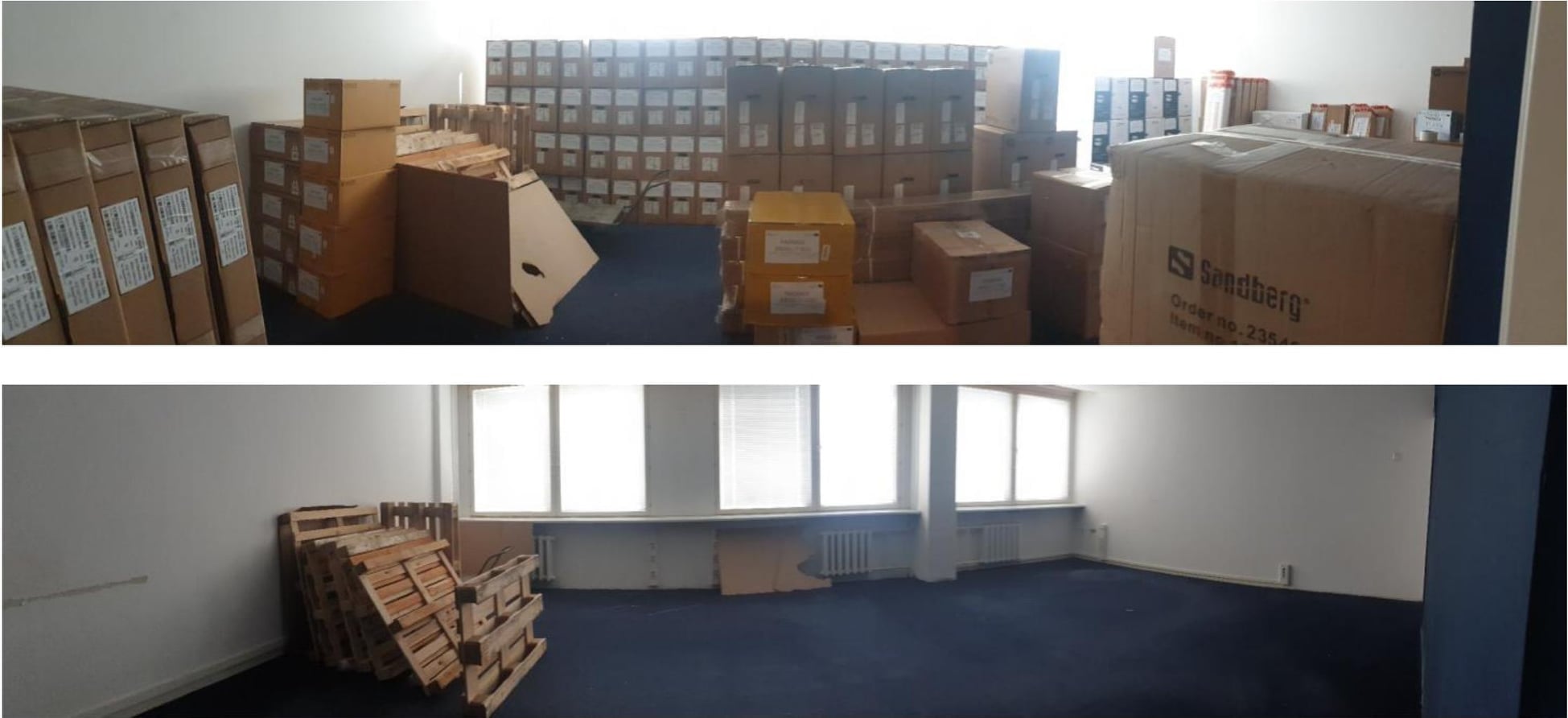
6. A full container of delicate devices sent to its journey
7. Finally arrived, stored and distributed to partners:
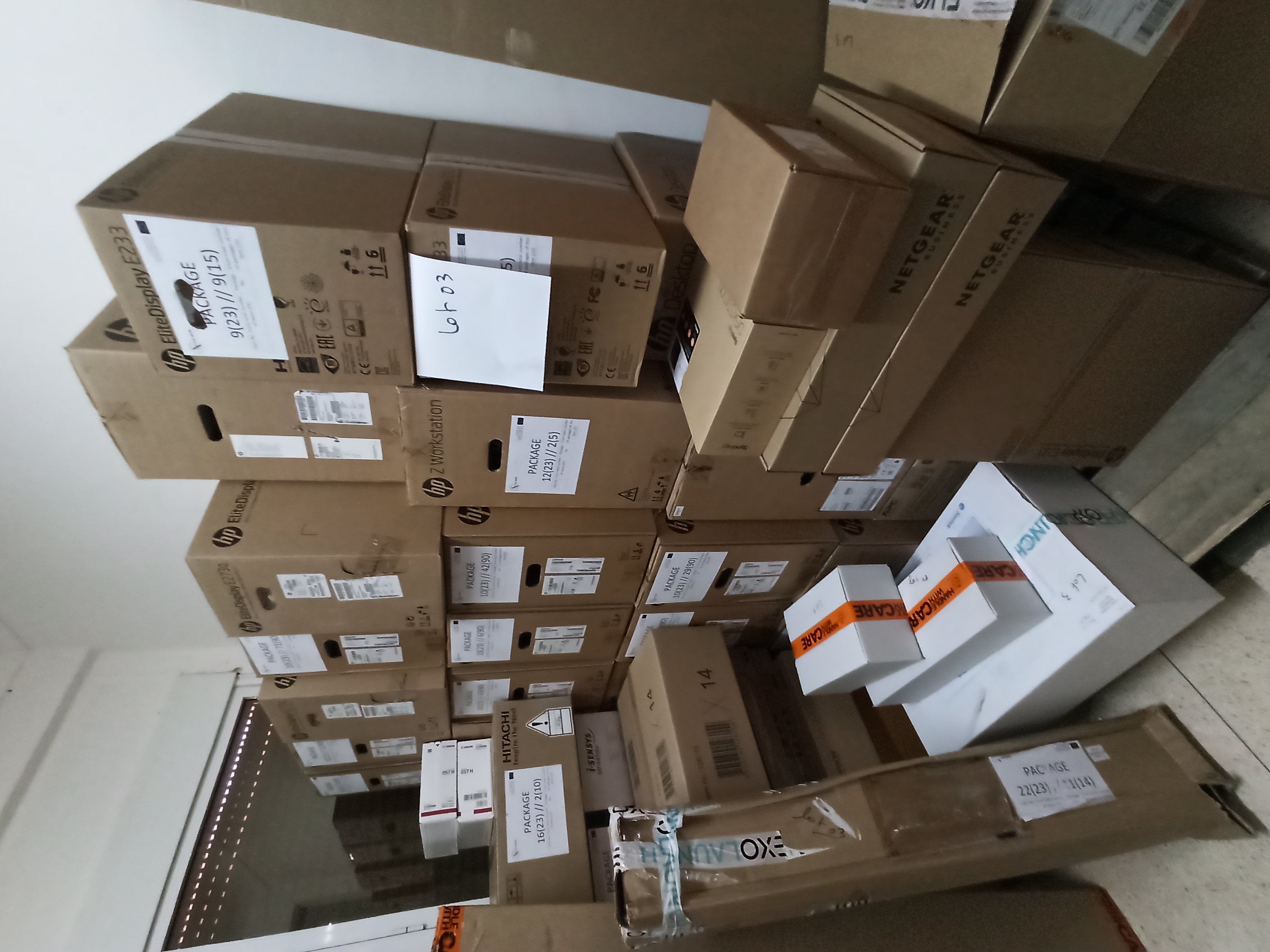 |
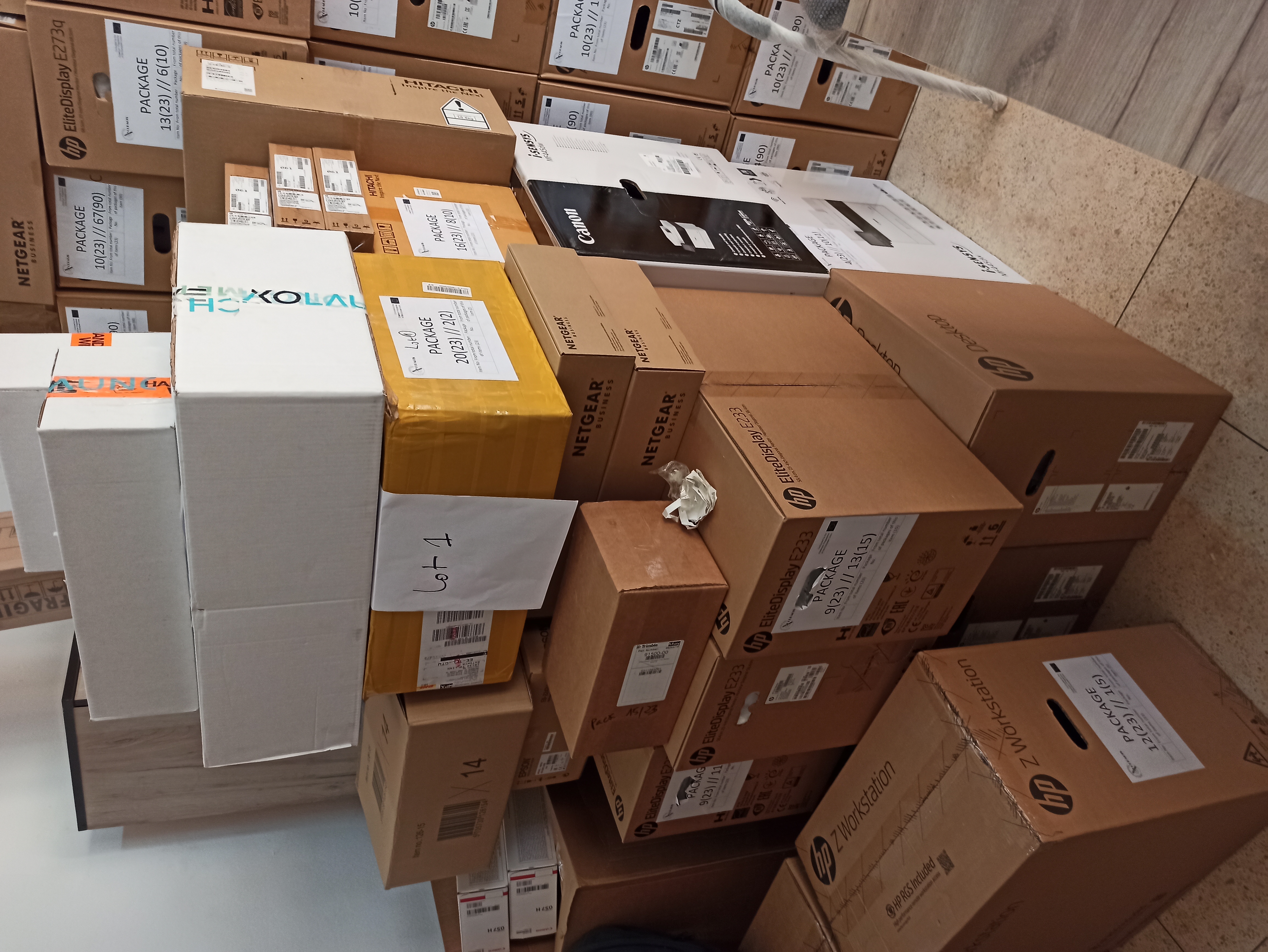 |
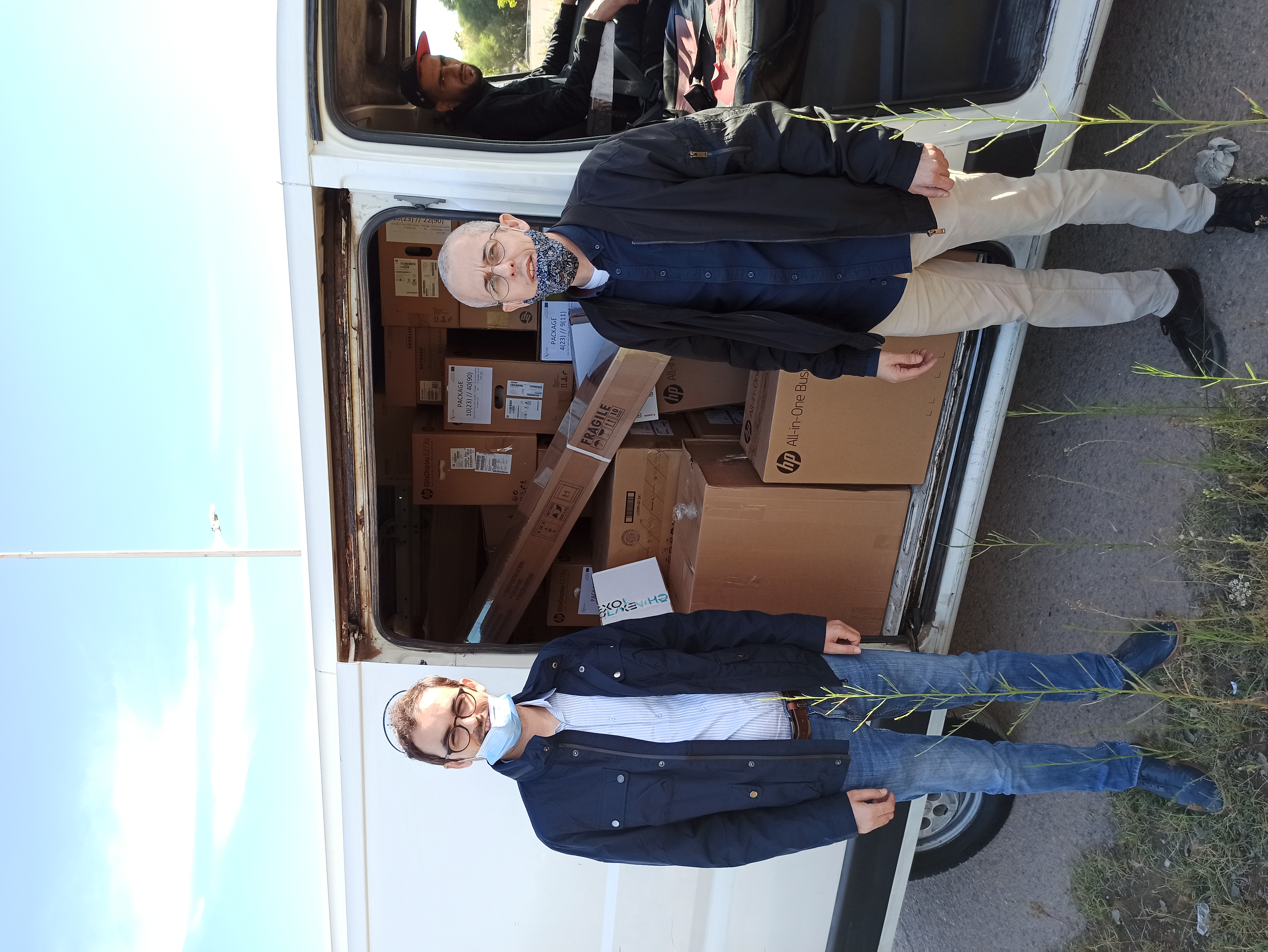 |
10. The same procedure repeated for the second set of equipment of four item necessary for successful teaching of precision agriculture:
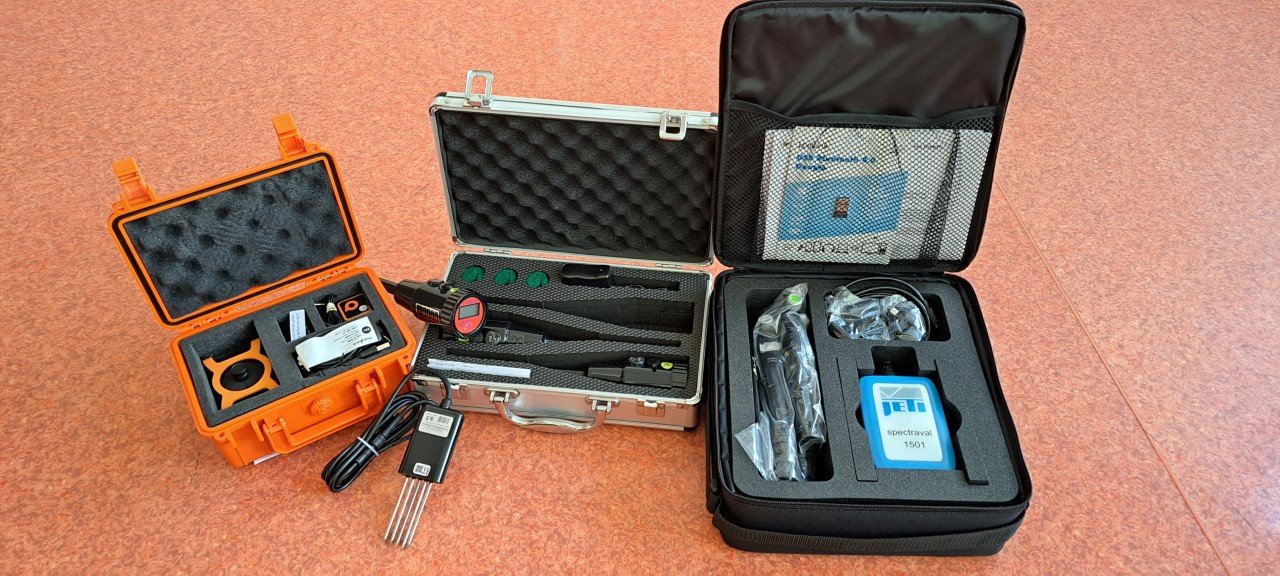
11. CUPAGIS equipment at Ecole Nationale Supérieure d’Agronomie, El Harrach/Alger
12. CUPAGIS equipment at University Abedelhamid ibn Badis of Mostaganem
13. CUPAGIS equipment at Ibn-Khaldoun University Tiaret
14. CUPAGIS equipment at Université d’Oran 1 Ahmed Ben Bella
15. CUPAGIS equipment at Djillali Liabes University of Sidi bel Abbès

The project coordinator Tarmo Soomere is happy at the Djillali Liabes University of Sidi bel Abbès; the computer class and server park are located in a former church room that has been renovated specifically to host CUPAGIS equipment for teaching. There is enough space even for large meetings or conferences.









